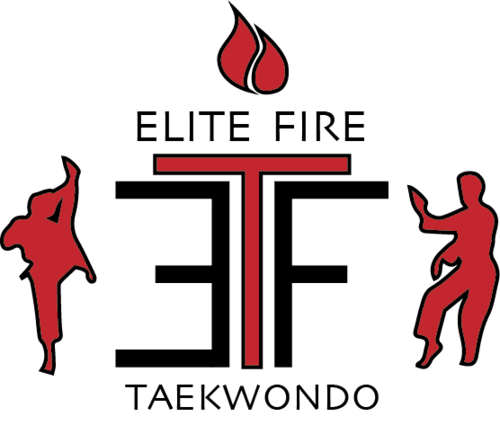What If Your Child Says “I Don’t Want to Go to Taekwondo”? — What Does That Really Mean?
Every parent has heard it at some point: “I don’t want to go.” Whether it’s about school, brushing teeth, or yes — Taekwondo class — it’s a phrase that triggers a moment of doubt.
Should I make them go? Are they not enjoying it? Maybe it’s not for them?
Before you make any decisions, let’s pause and look deeper. Because sometimes, that “no” doesn’t mean what you think it means.
🐶 Puppy Analogy: Lifelong Guidance Makes All the Difference
Let’s talk puppies for a moment.
Imagine you bring home a new puppy. You grab the leash for their first walk, excited for some outdoor fun. But what happens? They freeze at the door. Sit down. Maybe tug the leash in the other direction.
Does that mean the puppy doesn’t like walks? Of course not. They’re just unsure. It’s unfamiliar. They don’t yet know that this routine is safe, healthy, and full of good things.
Now imagine taking that same puppy to the dog park for the first time.
They step in, ears back, shaking a little. Their tail tucks between their legs.
They might cling to your leg, unsure of all the new smells, dogs, people, and sounds.
But fast forward a few visits later — they’re chasing balls, making friends, and running with confidence.
They just needed time, consistency, and a patient guide.
Kids are the same. When a student comes into Taekwondo class for the first few times, they may feel nervous, quiet, or unsure.
It doesn’t mean they don’t like it. It means they’re adjusting.
And when they have the same caring instructor, week after week, they begin to feel safe — and then they begin to grow.
You can’t rush trust. But with patience, it becomes powerful.
Young kids are the same way. When they say “I don’t want to go to Taekwondo”, they might just be saying:
- “I’m tired.”
- “I had a long day.”
- “I don’t want to change out of my comfy clothes.”
- “I’m nervous I won’t be good at it today.”
It’s not rejection — it’s resistance. And those are two very different things.
A Story From Our School
One of our students — let’s call her Emily — cried in the car on the way to class for weeks. Her parents told us she would hide behind the couch when it was time to leave. But they kept bringing her. Gently, but firmly. They said: “We’re going to class. Just like school. You don’t have to feel ready. Just show up.”
Now? Emily is one of our most confident students. She’s amazing with younger kids — always smiling, encouraging them, and setting a great example with her effort and attitude. Just recently, she broke a board with a beautiful jumping kick — something she used to fear.
She’s grown so much that we’re planning to invite her into our Leadership Program to begin working on her teaching skills. One day, when she’s a little older and more mature, we believe she’ll be one of the students helping to lead our classes — just like the instructors she looks up to now.
And it all started with simply showing up.
Kids Test Boundaries — And That’s Normal
Children naturally test boundaries. It's how they figure out the world. But if we treat every complaint or moment of resistance as a sign to quit or avoid, we unintentionally teach them:
- It’s okay to avoid hard things
- Discomfort means something’s wrong
- Commitment is optional
But if we lovingly hold the boundary — “We go to class because it’s good for you, even when it’s hard” — they grow stronger.
Cars Don’t Drive Without Gas — Kids Don’t Grow Without Structure
Imagine trying to drive a car with no gas, no wheels, or no destination. It won’t go far.
Kids need fuel too — and that fuel is structure, consistency, and loving limits. Martial arts provides all of that. In every class, they face new challenges, practice focus, learn respect, and build self-belief — even if they don’t realize it yet.
What You Can Say Instead
When your child says “I don’t want to go,” try this:
- “It’s okay to feel that way. But we’re still going — just like brushing your teeth or going to school.”
- “Sometimes our brains say ‘no’ when we’re nervous. Let’s see how you feel after class.”
- “You don’t have to be perfect. You just have to show up.”
And 99% of the time — they leave class smiling, proud, and full of energy.
Your Job Isn’t to Please Your Child — It’s to Guide Them
You’re not doing them a favor by backing off. You’re doing them a huge favor by showing them how to keep showing up, even when it’s hard.
Just like we train puppies into loyal, loving companions by giving them boundaries and trust, we raise confident kids by doing the same — with patience, love, and a clear “we’ve got this” attitude.
Final Thought
If you’ve ever had a “Ben” moment at home, know this: You’re not alone. You’re not being mean by encouraging commitment. You’re being a guide — and that’s one of the greatest gifts you can give.
At Elite Fire Taekwondo, we’ve seen hundreds of kids turn “I don’t want to go” into “Can we go early?” All it takes is time, consistency, and belief — even when they can’t see it yet.

